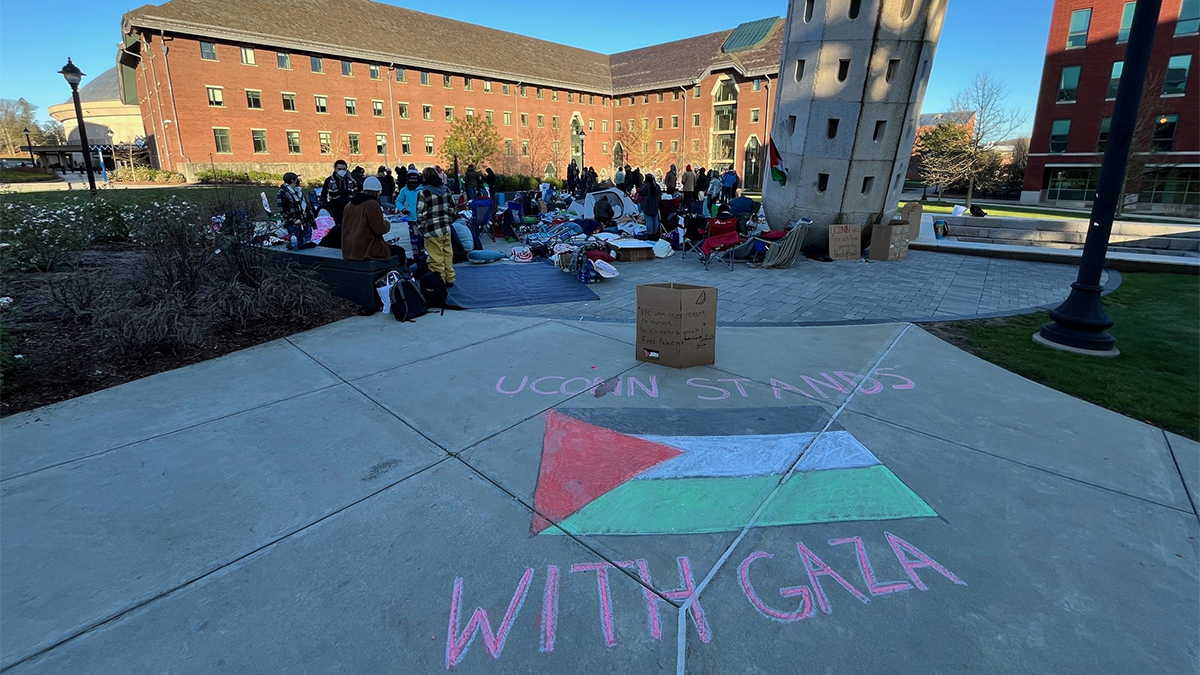“I went into sudden cardiac arrest because the blood was no longer pumping,” recalled Leigh Pechillo of Southington.
Pechillo remembered the massive heart attack she suffered on Mother’s Day in 2014. What she suspected was heartburn turned out to be much more, a widow-maker heart attack.
“I was LifeStarred to the hospital and they did find a 70% blockage,” said Pechillo.
Calcium blockages can be detected through a Coronary Calcium CT Scan.
Get Connecticut local news, weather forecasts and entertainment stories to your inbox. Sign up for NBC Connecticut newsletters.
“It’s a very quick scan where we do not use any contrast or dye to calculate or determine the amount of calcium that’s in your arteries,” said Dr. John Glenn Tiu, of the Calhoun Cardiology Center at UConn Health.
The results help doctors decide how aggressively to treat a patient, with simply a lifestyle change or cholesterol medication. Tiu considers it most useful for intermediate patients.
Local
“Definitely could save lives,” said Dr. Supriya Tigadi, also a cardiologist at UConn Health. “Coronary calcium score is very, very essential.”
However, both doctors add that we are the first line of defense.
“I think taking a pill or seeing a doctor is the easy part, but exercising every day, losing weight, keeping in mind what kind of diet you eat, cutting down on the salt, these are very, very important," said Tigadi.
Heart Healthy Bill
Right now, most insurance companies don’t cover the calcium test. Republican State Senator Kevin Kelly wants to change that.
“This is a low-impact, low-cost early detection tool that will enable women to get screenings earlier, test results sooner, and hopefully have better health outcomes,” said Kelly, the Republican Minority Leader.
The legislation has failed to make it out of committee on its last two tries. Kelly hopes the third time will be the charm.
NBC Connecticut reached out to state Democrats but did not get a response.
Kelly said he believes the bill has bipartisan support and just hasn’t gotten enough traction.
“Good ideas find friends and I think this is a good idea, it’s common sense. It’s an ounce of prevention to avoid the pound of cure,” said Kelly.
Pandemic Takes its Toll
Tigadi said cases of heart disease have risen during the pandemic.
“People ignored their heart health because we were all anxious about how COVID was going to be,” she explained. “We did tele-visits for a long time and those were good to keep an eye but not ideal.”
She said more patients are now arriving in the ER with heart problems after missing the symptoms and signs.
“Now, we are seeing the brunt of it, that people have stayed home with illness and now they’re sicker with heart failure,” said Tigadi.
After years of volunteering for the American Heart Association, Pechillo now works for the cause near and dear to her heart, hoping to keep others from becoming a statistic.
“It’s the number one killer of women in the United States and worldwide and one in three women will die of heart disease,” said Pechillo. “We need to make sure we make the effort to take the time for ourselves.”
Heart disease is also the number one killer of men, but the signs in women are more atypical and not as obvious.
According to Tigadi, they include pain in the back and jaw, heartburn, nausea, sweating and discomfort in your left arm. If you feel these symptoms, Tigadi said you should seek medical attention.
While you may want to wear red, keep your weight, cholesterol and blood pressure out of the red: the American Heart Association says to know your numbers.
“It’s really important that we do our part to encourage each other to take control of our hearts and take control of our health,” added Pechillo.



